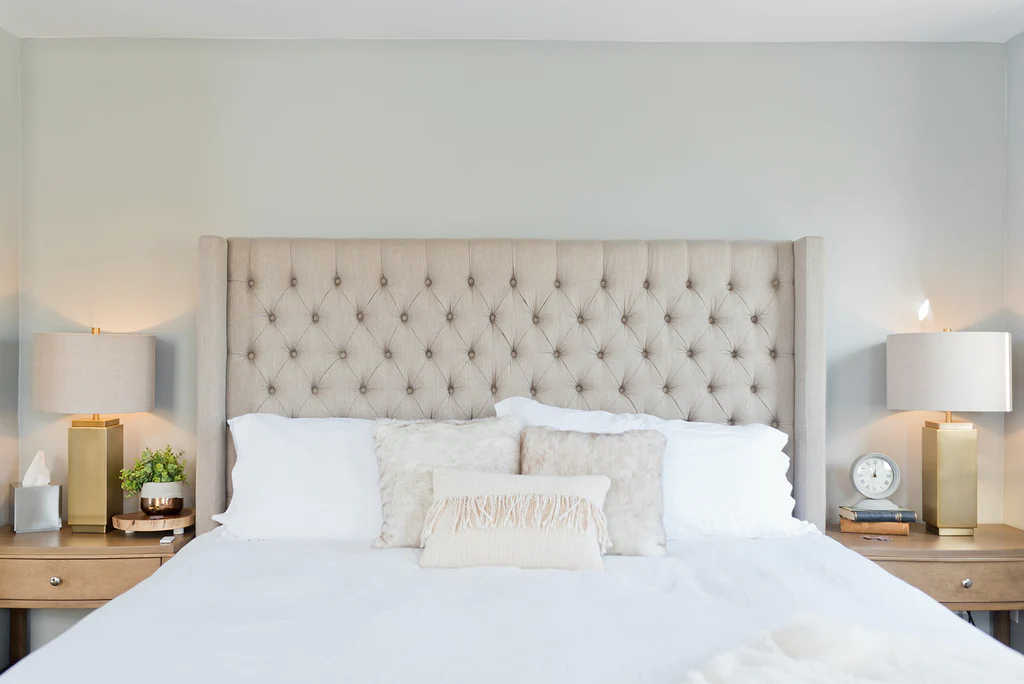Sleep Care And Bedtime Comfort For A Healthy Home
Sleep In A Healthier Home
We do it every night, and over the course of our life we will spend approximately a third of our time doing it: sleep. Sleep is a natural, restorative, physiological process that is necessary for human functioning. Just as you plug and recharge your phone in every night, sleep does the same thing for our brains. While you are sleeping your brain is actually hard at work, storing memories, improving retention, dreaming, or learning and improving new found skills. Sleep plays a huge role in your overall health. Fall short and it can take a serious toll on your daytime energy, productivity, emotional balance, and even your weight.
The National Sleep Foundation’s 2020 Sleep in America poll finds that Americans feel sleepy on an average of three days a week, with many saying it impacts their daily activities, mood, mental acuity, productivity and more. The National Sleep Foundation says the average adult (between the ages of 18-65) should be getting between seven and nine hours of sleep a day. Unfortunately, that is not the case, the average American only gets roughly 6.8 hours of sleep a night. We’ve gathered a list of tips to help you improve your sleep care, not only for a happier you, but a happier home.

Build Your Own Sleep Sanctuary
A peaceful bedtime routine sends a powerful signal to your brain that it’s time to wind down and let go of the day’s stresses. Creating a conducive sleep environment is an essential step for a healthy home. Sometimes even small changes to your environment can make a big difference in your quality of sleep. Whether it’s a new favorite pillow, or those blackout shades you’ve been eyeing—your body and mind will thank you every morning.
Deep Clean Your Linens
Deep Clean Your Linens. It can be easy to forget to change and clean your sheets, but it is imperative not only for your hygiene but to ensure a great nights sleep. Research shows that clean bedding improves your sleep (and romantic life). According to research carried out by the US National Sleep Foundation, 73% of us sleep better on fresh sheets. Clean bedding –taut sheets, plumped pillows, the crinkle of a rejuvenated duvet cover – brings the feel-good factor like nothing else. You know what we’re talking about…that fresh from the dryer smell and crisp feel, encourage comfort, calm and relaxation. We recommend slotting out a date weekly, or bi-weekly to wash your sheets and the rest of your linens to keep that fresh clean feeling. For more info on how often you should be washing your sheets click here.
Pro tip: Taking a shower before bed will help keep your bedding feeling fresh too. Climbing into bed squeaky clean means no dirt or germs will be transferred to your sheets. And if you’re getting into bed feeling clean, your sheets will feel better against your skin.
Set the Mood
Create a cool, dark sleeping environment with black out curtains and other relaxing elements like a noise machine to block out excess sound and help your body and mind slip into sleep. Bring in elements of nature indoors to create a relaxing space. One way to achieve this is playing nature sounds (you can find lots of playlists on Spotify) as you drift off to sleep, as sounds of nature can help calm the nervous system and support relaxation. Or place a vase lavender on your nightstand. Lavender is an aromatherapy powerhouse that smells so good and, in small studies, has been linked with improved sleep quality — it’s a small way to turn your bedroom into a spa-like oasis.
Splurge on a Silk Eye Mask
Darkening your bedroom is key to supporting healthy, deep sleep. If blackout curtains are out of your budget, opt for an eye mask. Silk ones in particular tend to be cool, comfortable, and effective.
Dress Your Bed
Your most restful bed begins with investing in good quality linens crafted without synthetic materials or harsh chemicals, dyes or finishes. For the freshest feeling bed, 100 percent cotton sheets are the way to go. Cotton is naturally hypoallergenic and breathable, meaning they’ll stay fresh for longer and have a soft and luxurious feel. Sinking into crisp sheets, cozy blankets and fluffed-up pillows soothes the spirit and encourages a restful night’s sleep. Click here to find out how you can transform your bed into a luxurious hotel made bed you can only dream of.
Don’t Forget the Throw
A soft and cuddly throw adds a touch of softness to the foot of the bed, and can come in handy when you’re sitting up in bed to read on a chilly night.
Therapeutic Blankets
Weighted blankets help reduce symptoms of anxiety. If you have anxiety, sleep problems, or nerves about the new year (like so many of us), take care of yourself and invest in one.
Mattress Matters
Start with the best mattress you can afford. A low-quality mattress can cause stiffness and back pain as well as disturbed sleep. If you aren’t buying a new mattress, adding an ultra comfortable mattress topper can transform the way your bed feels. Try out memory foam, merino wool or a classic feather bed.

Improving Your Nights Sleep
It’s easy to undervalue sleep but the more priority you give to time spent in slumber, the more productive and energized you’ll be during the day. The benefits of a goodnights sleep can range from preventing you getting sick, increasing productivity, reducing stress, and improving your overall mood. Follow these easy and almost effortless tips to ensure your body is getting the sleep it needs and deserves.
Make a Schedule. Be consistent and go to bed at the same time each night. You can reset your body’s circadian rhythm.
Unplug and actually put down. Don’t watch TV or catch up on your latest texts, emails, news feeds, and social media posting directly before bed. Give yourself 20-30 minutes to decompress before your head hits the pillow. Remove all technological devices from your bedroom, and don’t go to sleep with the television on.
Unwind. Give yourself 20-30 minutes to decompress before your head hits the pillow.
Skip the munchies. Avoid eating large meals, drinking or consuming a lot of caffeine or drinking alcohol right before bed time
Exercise. Work on being more physically active during the day. Studies show exercise improves sleep quality. When you get your body moving during the day, your body gets conditioned to wind down for sleep. Just make sure you aren’t doing you exercise directly before your bedtime.
Reduce blue light exposure at night time. During the day it can be beneficial for humans, we suggest getting a pair of blue light blocking glasses, or just put down any blue light transmitting device down two hours prior to your estimated sleep schedule.
Stop drinking caffeine late in the afternoon. Stop drinking caffeine late in the afternoon. When consumed late in the day, caffeine stimulates your nervous system and may stop your body from naturally relaxing at night. In one study, consuming caffeine up to 6 hours before bed significantly worsened sleep quality.
Relax and clear your mind in the evening. Relaxation techniques before bed have been shown to improve sleep quality. Strategies include listening to relaxing music, reading a book, taking a hot bath, meditating, deep breathing, and visualization. Try out different methods and find what works best for you.

Feel The Difference
Creating a relaxed and comfortable environment in which you reset and recharge is the epicenter of a good nights sleep. It is no secret sleep plays a huge role in your daily, and long term health. Create a happier and healthier home by dedicating the time to evaluate your sleep routine and see if you can change up anything to increase your nights rest and overall comfort night after night.
